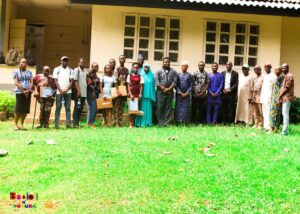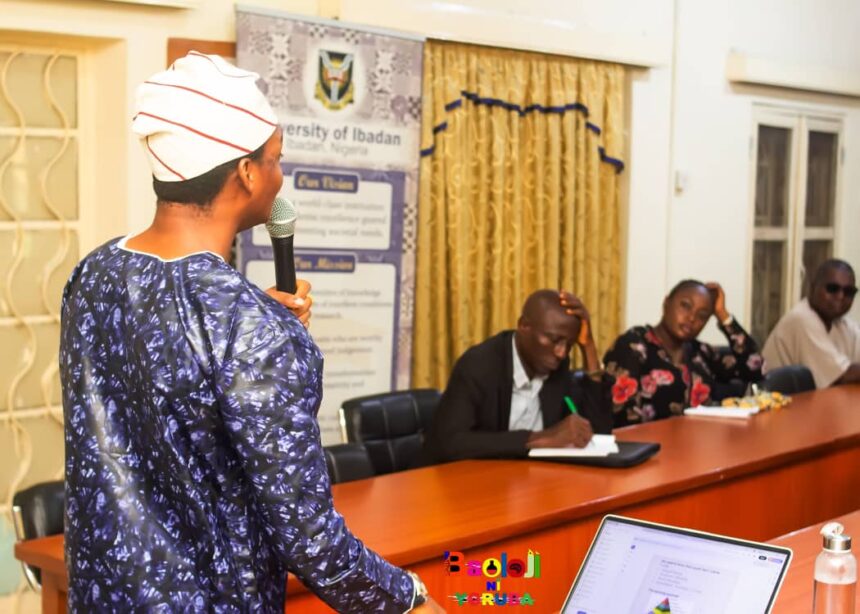By Opeyemi Quadri
While the world today is advancing rapidly through scientific discoveries and technological innovations, Nigeria remains behind in Science and Technology education. Despite the symbiotic relationship between science and technology—where scientific knowledge fuels technological advancement—Nigeria continues to lag in building a robust scientific foundation, particularly in its educational system.

As Nelson Mandela famously said, “Education is the most powerful weapon to change the world.” Indeed, education stands at the forefront of all societal transformation. Yet, Nigeria’s science development remains retarded due to limited resources, inadequate teacher training, outdated learning materials, and a significant barrier: the inability of science educators to teach in indigenous languages.
Science literacy—the ability to understand key scientific concepts and apply them in daily life—is crucial for societal advancement. Biology, in particular, plays a vital role in this, given its relevance to life sciences, environmental issues, and health literacy. It promotes critical thinking and equips students to make informed decisions. However, in Nigeria, biology is still taught as a standalone subject rather than a dynamic tool for exploration and discovery.
To bridge this gap and tackle high science illiteracy, the Biology in Yoruba IMO EDA Pedagogy Workshop for Biology Teachers was established. This free professional development initiative was led by Moshood A. Abiola (Lead-trainer) and Samuel Ajayi-Waldorf (Co-trainer) in partnership with The Pollination Project Foundation, NC. The goal is simple yet ambitious: equip Biology teachers with modern, bilingual pedagogical skills using both internationally accepted standards and culturally relevant teaching methods.
Twenty biology teachers from government secondary schools in Oyo State were selected for the workshop. They received hands-on training that sharpened their theoretical and practical skills in teaching biological sciences. Emphasizing that “how students are taught greatly influences what they learn,” Lead-trainer Moshood Abiola highlighted the need for teaching approaches that encourage critical thinking and inquiry.
A major innovation in the workshop was the bilingual approach. Biological concepts were explained in both Yoruba and English, allowing teachers to grasp content more deeply and transmit it more effectively to their students. Language plays a critical role in comprehension, and teaching science in the mother tongue can dismantle complex concepts and enhance retention.
Three major biology topics were explored during the workshop. Teachers were encouraged to go beyond textbooks, which often present outdated information and lack real-world applications. Instead, they were advised to embrace teaching strategies that foster inquiry, hands-on experimentation, and relevance to students’ daily lives.
To support their teaching journey, all participants received free bilingual course materials, certificates of participation, refreshments, and transport logistics. The workshop also adhered to SDG 13 by incorporating eco-friendly practices and promoting climate change education and sustainable development.
Despite the progress made, the teachers voiced recurring challenges: outdated curricula, lack of technology in classrooms, absence of funding for research, and poor instructional strategies. These, they noted, hinder the effectiveness of biology education and limit opportunities for innovation.
In response, the organisers—collectively known as the Biology in Yoruba crew—pledged ongoing support. This includes future workshops, provision of anatomical models, mentorship programs, and partnerships with key educational stakeholders to address systemic challenges.
Ultimately, the IMO EDA Pedagogy Workshop represents more than a teacher training initiative—it is a movement to revolutionize science education in Nigeria. By empowering teachers to teach biology in both global and local languages, the program is cultivating a new generation of learners equipped with scientific curiosity, resilience, and the tools to transform society.

